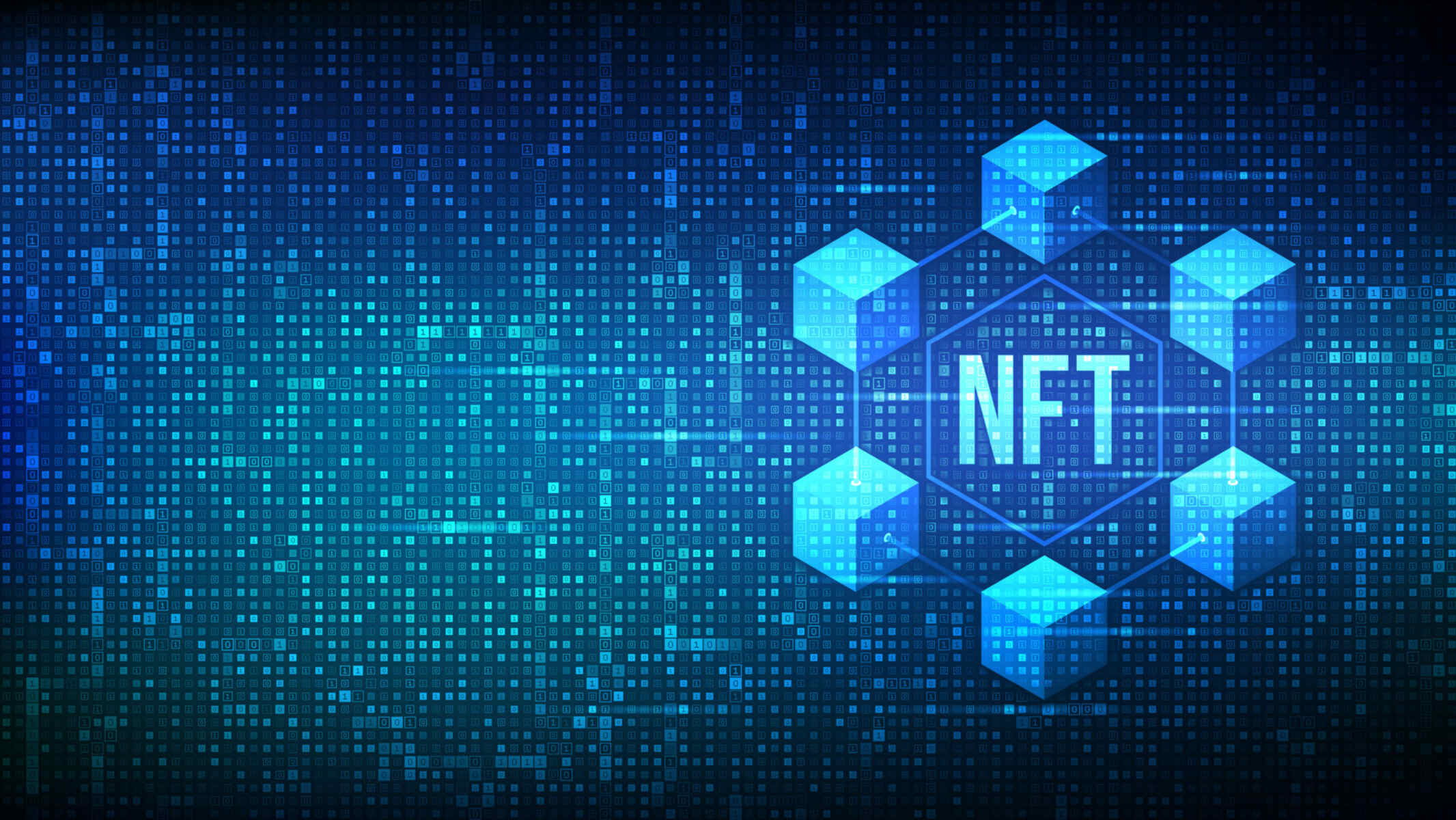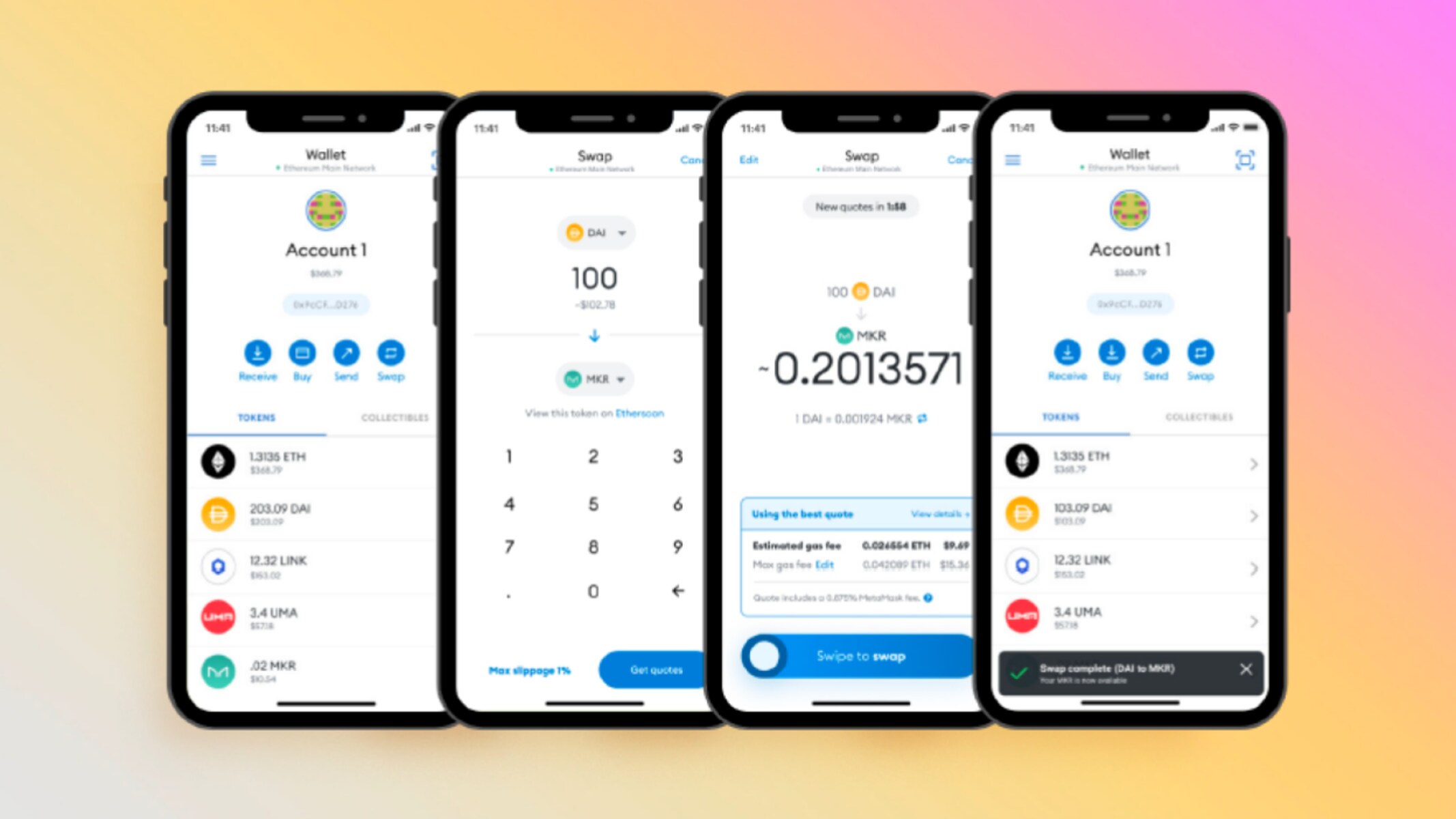What are NFTs?
NFTs, or Non-Fungible Tokens, have gained significant attention recently as a new form of digital asset. But what exactly are NFTs and why are they getting so much buzz in the world of cryptocurrency?
At its core, an NFT is a unique digital token that represents ownership or proof of authenticity of a specific asset or piece of content. Unlike cryptocurrencies such as Bitcoin or Ethereum, which are fungible and can be exchanged on a one-to-one basis, NFTs are indivisible and cannot be exchanged on a like-for-like basis. Each NFT has its own distinct value and characteristics, making it a one-of-a-kind item in the digital realm.
What sets NFTs apart is their ability to represent ownership and provenance for various types of digital assets, including but not limited to digital artwork, music, videos, virtual real estate, and even tweets. Through the use of blockchain technology, NFTs provide a transparent and immutable record of ownership, ensuring the uniqueness and scarcity of the asset.
The value of an NFT depends on various factors, such as the demand for the asset, the reputation of the creator, and the rarity of the item. Collectors and enthusiasts are drawn to NFTs as they provide a new way of owning and experiencing digital assets, blurring the boundaries between the physical and digital worlds.
The concept of owning a digital asset may seem abstract to some, but NFTs have opened up a world of possibilities. Artists and content creators can now monetize their digital creations in ways that were previously challenging or impossible. Musicians can sell unique music albums, artists can auction off digital artwork, and even virtual property within virtual worlds can be bought and sold using NFTs.
It’s important to note that NFTs have faced some criticism for their environmental impact, as the energy consumption associated with blockchain networks can be significant. This issue is currently being addressed, with the search for more sustainable solutions underway.
Overall, NFTs have given rise to a new era of digital ownership and expression, offering unique opportunities for artists, collectors, and investors. As the market continues to evolve, it’s essential to stay informed and navigate this exciting landscape responsibly.
Understanding the Basics
Before diving into the world of NFTs, it’s crucial to grasp the fundamental concepts that underpin this rising form of digital ownership. By understanding the basics, you’ll be better equipped to navigate the exciting world of NFTs with confidence.
Blockchain Technology: NFTs are built on blockchain technology, which is a decentralized and transparent digital ledger. Blockchain ensures the security and validity of NFT transactions by recording them in a decentralized network of computers.
Ownership and Authenticity: NFTs solve the problem of proving ownership and authenticity for digital assets. Each NFT is unique and carries metadata that certifies its originality and ownership. This provides creators and buyers with a level of trust and assurance.
Scarcity and Rarity: The value of an NFT is often based on its scarcity and rarity. The notion of scarcity is integral to the collectibility of NFTs, as limited edition or one-of-a-kind digital assets tend to fetch higher prices in the marketplace.
Smart Contracts: NFTs use smart contracts, which are self-executing contracts with predefined rules. Smart contracts automate the buying, selling, and licensing of NFTs, ensuring that creators receive royalties and enabling a transparent and secure transaction process.
Wallets and Marketplaces: To participate in the NFT ecosystem, you’ll need a digital wallet that supports NFTs. These wallets enable you to store, track, and manage your NFT collections. Additionally, various online marketplaces exist where you can buy, sell, and trade NFTs.
Ethical Considerations: As with any emerging technology, it’s essential to be mindful of ethical considerations in the world of NFTs. Some concerns include intellectual property rights, plagiarism, and the environmental impact of blockchain networks. It’s crucial to conduct thorough research and engage in ethical practices when participating in the NFT space.
By understanding these foundational concepts, you’ll be better prepared to engage with NFTs and navigate the exciting opportunities they present. Keep in mind that the NFT landscape is dynamic and evolving, so staying informed and adapting to changes will be key to your success.
Researching the Marketplace
Before diving into the world of NFTs, it’s essential to conduct thorough research to understand the marketplace and make informed decisions. The NFT space is vibrant and evolving, with countless artists, creators, and platforms participating. Here are some key steps to help you in your journey of researching the NFT marketplace.
Explore Different Platforms: Start by exploring various NFT platforms to understand their offerings, user interface, and reputation within the community. Some popular platforms include OpenSea, Rarible, SuperRare, and NBA Top Shot. Each platform may have a different focus, such as art, music, sports, or collectibles. By exploring different platforms, you can find those that align with your interests.
Research Artists and Creators: Take the time to research and learn about artists and creators in the NFT space. Look at their portfolios, previous works, and social media presence. This will help you gauge the quality and value of their NFT offerings. Building connections with artists and engaging with their communities can also provide valuable insights and opportunities.
Study Market Trends: Keep a close eye on market trends and patterns within the NFT space. Look for emerging trends in art styles, themes, and formats. Stay updated with news and developments in the NFT industry, as this can influence the demand and value of different types of NFTs. Being informed about market trends will help you make strategic decisions when buying or investing in NFTs.
Evaluate Rarity and Demand: When considering purchasing an NFT, evaluate its rarity and demand within the marketplace. Rare and unique NFTs tend to have higher value and potential for appreciation. Look at factors such as scarcity, edition size, and the artist’s reputation. Additionally, consider the demand for the type of NFT you are interested in to ensure there is a market for potential resale or trading.
Engage with the Community: Participate in forums, social media groups, and online communities focused on NFTs. Engaging with the community can provide valuable insights and opportunities to learn from experienced collectors and enthusiasts. Networking within the community can also lead to collaborations, partnerships, and discover new artists or projects.
Researching the NFT marketplace is an ongoing process. It requires staying informed, being open to new opportunities, and adapting to the evolving nature of the industry. By conducting thorough research and keeping a pulse on the market, you’ll be well-equipped to make confident decisions and fully immerse yourself in the exciting world of NFTs.
Setting up a Digital Wallet
In order to buy, sell, and store your NFTs, you’ll need to set up a digital wallet specifically designed to support NFT transactions. A digital wallet acts as your personal vault for securely storing and managing your NFTs. Here are the steps to get started with setting up a digital wallet:
Choose a Wallet: There are several digital wallet options available that support NFT storage. Popular choices include MetaMask, Trust Wallet, and Coinbase Wallet. Research and compare different wallets to find one that suits your needs in terms of security, user-friendliness, and compatibility with the platforms you plan to use.
Download and Install: Once you’ve selected a wallet, download and install it on your preferred device. Many wallets are available as browser extensions or mobile apps, making it convenient to access your wallet from different devices.
Create a New Wallet: Follow the wallet’s setup process to create a new wallet. This usually involves setting a strong password and generating a unique recovery phrase. The recovery phrase is crucial for restoring your wallet in case you lose access to your device or need to recover your wallet on a different device.
Secure Your Wallet: Take steps to ensure the security of your wallet. Enable security features such as two-factor authentication (2FA) and biometric authentication if available. Be cautious and keep your wallet information confidential, as anyone with access to your wallet can potentially access and transfer your NFTs.
Connect to NFT Platforms: Once your wallet is set up, you’ll need to connect it to the NFT platforms you plan to use. This is usually done by linking your wallet address to the platform or signing in to the platform through your wallet. Each platform may have slightly different instructions, so follow the specific guidelines provided by the platform you are using.
Fund Your Wallet: Before you can start purchasing NFTs, you’ll need to have cryptocurrency in your wallet to pay for them. Depending on the platform and wallet you are using, you may be able to buy cryptocurrency directly through the wallet or transfer cryptocurrency from another wallet or exchange.
Backup Your Wallet: It’s crucial to regularly backup your wallet to prevent loss of access to your NFTs. Most wallets will prompt you to backup your wallet during the setup process. Make sure to securely store your recovery phrase and keep it in a separate location from your device.
Setting up a digital wallet is an essential first step in your NFT journey. Take the time to research and choose a reliable wallet that provides the features and security you require. Once your wallet is set up, you’ll be ready to explore the exciting world of NFTs and securely manage your digital assets.
Purchasing and Owning an NFT
Once you have set up your digital wallet and conducted the necessary research, you are ready to dive into the world of purchasing and owning NFTs. Here is a step-by-step guide to help you navigate the process:
Select a Platform: Choose a reputable NFT platform that aligns with the type of NFTs you are interested in. Consider factors such as user interface, fees, and the artists or creators featured on the platform. Popular platforms include OpenSea, Rarible, and SuperRare.
Browse and Discover: Explore the platform’s marketplace to discover NFTs that capture your interest. You can filter and search for specific categories, artists, or collections to find the perfect NFT for you. Take your time to browse and evaluate the offerings before making a purchase.
Evaluate NFT Listings: Look for detailed information about the NFT you are interested in, including the artist or creator, description, edition size, and any additional benefits or perks associated with the NFT. Examine the artwork or content and read any accompanying information or backstory provided by the creator.
Check Authenticity and Provenance: Verify the authenticity and provenance of the NFT. Look for any certificates, timestamps, or verification provided by the creator or the platform. It’s important to ensure that the NFT you are considering is genuine and not a counterfeit or unauthorized copy.
Review Pricing and Terms: Take the time to review the pricing of the NFT, including the current asking price, any bidding options, or potential royalties for the creator. Consider your budget and make sure you understand the terms of the sale, including any additional fees or commissions charged by the platform.
Make a Purchase: Once you have found the NFT you want to buy, follow the platform’s instructions to complete the purchase. This usually involves confirming the transaction and paying with cryptocurrency from your connected wallet. Ensure that you have enough funds in your wallet to cover the purchase and any associated fees.
Receive and Store your NFT: After a successful purchase, the NFT will be transferred to your digital wallet. You can view and manage your NFT collection within your wallet. It’s recommended to organize and categorize your NFTs for easier access and management.
Enjoy Ownership and Support Creators: Owning an NFT means you have a unique piece of digital content tied to your wallet. Celebrate your ownership and support the creators and artists behind the NFT. Share and showcase your NFT collection with others, and engage with the NFT community to exchange ideas and insights.
Remember to stay informed about the NFT market, as trends and opportunities are ever-evolving. Keep track of your NFTs and consider their long-term value, as some NFTs may appreciate in price over time. With careful consideration and research, purchasing and owning NFTs can offer an exciting and rewarding experience.
Storing and Managing your NFTs
Once you have purchased NFTs, it’s crucial to ensure their safe storage and effective management. As these digital assets hold value and significance, proper organization and security measures are essential. Here are some key steps to consider when storing and managing your NFTs:
Choose a Secure Wallet: Select a secure digital wallet that supports NFT storage. Consider wallets like MetaMask, Trust Wallet, or Coinbase Wallet, which provide NFT functionalities. Ensure that your chosen wallet has robust security features, such as encryption, two-factor authentication, and the ability to control access to your NFTs.
Categorize your NFTs: Create a system for categorizing and organizing your NFT collection. This could include organizing by artists, collections, themes, or even by the type of NFT (e.g., art, music, virtual real estate). Having a structured approach will help you easily locate and manage your NFTs as your collection grows.
Back Up your Wallet: Regularly back up your digital wallet to ensure that you don’t lose access to your NFTs. Most wallets provide options to export or save a backup of your wallet’s private keys or recovery phrase. Store this backup in a secure location, such as an encrypted external drive or a hardware wallet.
Monitor Platform Updates: Stay informed about updates and changes on the NFT platforms you use. Platforms may introduce new features or security enhancements that could impact your NFTs’ storage and management. Keeping up with platform updates will help you adapt your storage and management practices accordingly.
Consider Cold Storage: For added security, consider transferring some of your NFTs to cold storage. Cold storage refers to storing your NFTs offline, typically on a hardware wallet or an air-gapped computer. This reduces the risk of unauthorized access or online security breaches.
Be Mindful of Gas Fees: Gas fees refer to the transaction fees associated with blockchain networks, such as Ethereum. When moving or selling NFTs, be mindful of the gas fees involved. Gas fees can fluctuate, so it’s essential to consider the costs and plan your transactions accordingly to minimize expenses.
Stay Informed about NFT Marketplaces: Continuously educate yourself about new NFT platforms and marketplaces as they emerge. Different platforms may offer unique features, exclusive drops, or opportunities for showcasing and selling your NFTs. Being aware of these developments will help you explore new avenues for storing, managing, and potentially monetizing your NFTs.
Engage with NFT Communities: Participate in NFT communities and forums to exchange knowledge and experiences with like-minded individuals. Engaging with these communities can provide valuable insights into best practices for storing and managing NFTs. It also allows you to stay up-to-date with the latest trends and opportunities in the NFT ecosystem.
By following these storage and management practices, you can ensure the security and longevity of your NFT collection. Regularly reassess and adapt your storage strategies as your collection grows or as new tools and technologies become available.
Participating in NFT Auctions and Sales
Participating in NFT auctions and sales can be an exciting way to acquire unique digital assets and engage with the vibrant NFT community. Whether you’re looking to buy or sell NFTs, here are some key steps to help you navigate this dynamic marketplace:
Research Auction Platforms: Familiarize yourself with different NFT auction platforms, such as Foundation, SuperRare, or Nifty Gateway. Each platform may have its own unique features, auction formats, and user base. Researching and understanding these platforms will help you choose the ones that best align with your interests and goals.
Explore Auction Listings: Browse through the auction listings to discover NFTs that capture your attention. Take the time to carefully review the details, including the creator, bidding end time, minimum bid, and any additional terms and conditions set by the seller. Evaluate the uniqueness, rarity, and potential value of the NFT before deciding to participate.
Set a Bidding Strategy: Establish a clear bidding strategy before entering an auction. Determine your maximum bid and consider factors such as the current market value, scarcity of the NFT, and your personal budget. Be mindful of the potential for bidding wars and carefully manage your bids to avoid overpaying.
Participate in Live Auctions: Some auctions have a live bidding component, which adds excitement and a competitive edge. During live auctions, make sure you monitor the bidding process closely and be prepared to increase your bids strategically. Familiarize yourself with any bidding increments or rules specific to the auction platform.
Consider Buy Now Sales: In addition to auctions, many platforms also offer NFTs for sale at a fixed “buy now” price. These sales are typically first-come, first-served, allowing you to purchase the NFT immediately at the listed price. Keep an eye out for valuable NFTs listed in buy now sales, as they may offer a more straightforward acquisition process.
Follow Auction Etiquette: When participating in NFT auctions, it’s crucial to adhere to proper auction etiquette. Respect other bidders and refrain from bid manipulation or any dishonest practices. Engage in a fair and transparent manner, contributing to the positive and inclusive nature of the NFT community.
Sell NFTs in Auctions: If you’re interested in selling your own NFTs through auctions, research the platforms that offer this functionality. Make sure you understand the platform’s listing and fees structure. Set a minimum reserve price that you are comfortable with and consider strategic timing to maximize the visibility and potential value of your auctioned NFTs.
Track Auction Results: Keep track of the results of the auctions you participate in, whether as a buyer or a seller. Analyze the final sale prices and compare them to the initial bids and market trends. This information can guide your future buying or selling decisions and help you make informed choices in the NFT marketplace.
Participating in NFT auctions and sales offers an exciting opportunity to acquire or sell unique digital assets. By conducting thorough research, developing a bidding strategy, and adhering to proper auction etiquette, you can make the most of your experience and engage with the thriving world of NFTs.
Selling or Trading your NFTs
Once you have accumulated a collection of NFTs, you may consider selling or trading them to explore new opportunities or monetize your digital assets. Selling or trading your NFTs can be an exciting way to engage with the NFT community and potentially generate income. Here are some key steps to navigate the process:
Research NFT Marketplaces: Explore different NFT marketplaces to identify the platforms that align with your goals. Platforms like OpenSea, SuperRare, Rarible, and NBA Top Shot are popular choices for selling and trading NFTs. Familiarize yourself with their listing fees, user interface, and community reputation.
Set a Selling Strategy: Define your selling strategy based on your goals, whether it’s maximizing profit, showcasing your work, or building relationships within the NFT community. Determine the appropriate timing for listing your NFTs and consider factors such as the current market demand, comparable sales, and any upcoming events or releases that may impact your NFT’s value.
Create Compelling Listings: Craft enticing and detailed listings for your NFTs. Include high-quality visuals, accurate descriptions, and relevant metadata to attract potential buyers. Highlight any unique features, limited edition status, or collaborations that may increase the value and desirability of your NFT.
Price your NFTs: Determine the pricing strategy for your NFTs. Research recent sales of similar NFTs to gauge market value and identify a competitive price point. You may also consider setting an auction format or accepting offers to allow for bidding or negotiation, which can potentially drive up the final sale price.
Promote your NFTs: Take an active role in promoting your NFTs to increase their visibility and attract potential buyers. Leverage social media platforms, dedicated NFT communities, and your existing network to showcase and share your listings. Engage with the NFT community by participating in discussions, collaborations, and events to build awareness and interest around your NFTs.
Manage the Selling Process: Once your NFT is listed for sale, be prepared to manage inquiries, offers, and potential negotiations with buyers. Promptly respond to messages, provide additional information if requested, and negotiate terms such as payment and transfer of ownership. Be mindful of the platform’s rules and guidelines to ensure a smooth and transparent selling process.
Consider Trading and Swapping: Instead of selling your NFTs for cryptocurrency, you may explore opportunities for trading or swapping your NFTs with other collectors or artists. This can be a way to diversify your collection, acquire desired NFTs, or collaborate with other creators. Look for dedicated trading platforms or engage directly with the NFT community to explore potential swap opportunities.
Protect your Intellectual Property: When selling or trading your NFTs, consider the protection of your intellectual property rights. Clearly define the terms and conditions of the sale to ensure that the ownership of the NFT is properly transferred to the buyer while retaining your rights as the creator. Consult legal advice if necessary to ensure you have a solid understanding of your rights and obligations.
Selling or trading your NFTs can be an exciting and rewarding experience. By conducting thorough research, setting a selling strategy, promoting your NFTs effectively, and managing the selling process professionally, you can navigate the NFT marketplace and potentially unlock new opportunities and value for your digital assets.
























